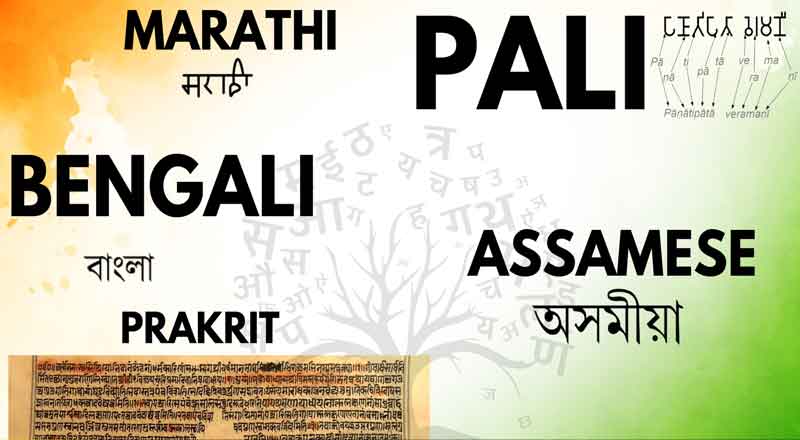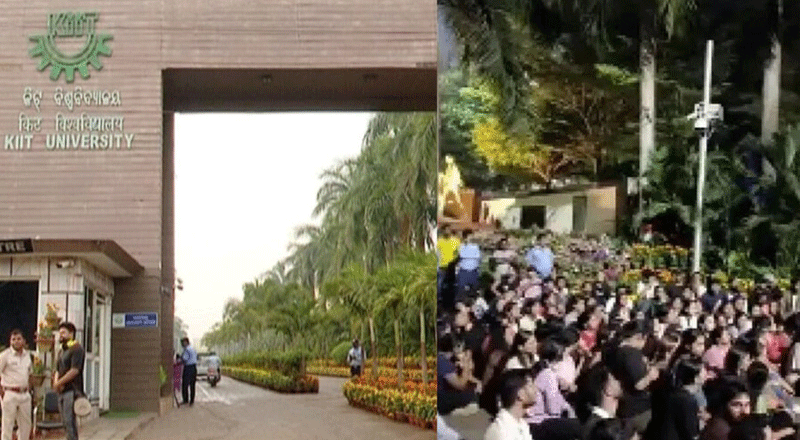The government conferred classical language status to Marathi, Pali, Prakrit, Assamese and Bengali Thursday evening. So far, the title was given to Tamil, Malayalam, Sanskrit, Telugu, Kannada and Odia. The government is taking steps to promote the classical languages to preserve India’s rich heritage, said Union minister Ashwini Vaishnaw.
“The Union Cabinet chaired by the Prime Minister Shri Narendra Modi has approved to confer the status of classical language to Marathi, Pali, Prakrit, Assamese and Bengali languages. The classical languages serve as a custodian of Bharat’s profound and ancient cultural heritage, embodying the essence of each community’s historical and cultural milestone,” the government said in a press release.
The government believes that the inclusion of languages as classical language will create significant employment opportunities, particularly in academic and research fields. Additionally, the preservation, documentation, and digitisation of ancient texts of these languages will generate jobs in archiving, translation, publishing, and digital media.
In order to promote classical languages, the government set up three Central universities in 2020 for Sanskrit language. The Central Institute of Classical Tamil was established to facilitate the translation of ancient Tamil texts, promote research and offer courses for University students. For the study and preservation of Classical Languages, the Centres for Excellence for Studies in Classical Kannada, Telugu, Malayalam, and Odia were established under the auspices of the Central Institute of Indian Languages in Mysuru.
In addition to these initiatives, several national and international awards have been instituted to recognise and encourage achievements in the field of classical languages. The Ministry of Education extends benefits to Classical Languages including National Awards for Classical Languages, Chairs in Universities, and Centers for promotion of Classical Languages.
What is A Classical Language?
Classical languages are ancient languages with independent traditions and a rich literary history that continue to influence various literary styles and philosophical texts.
With the latest approval from the Cabinet, the total number of recognised classical languages in India has now increased to 11. Previously, Tamil, Sanskrit, Telugu, Kannada, Malayalam, and Odia had already received classical language status.
Criteria For Declaring A Classical Language
The government had created a new category called ‘Classical Languages’ on October 12, 2004. It declared Tamil as classical language based on its history of over a thousand year, texts and literature, which are considered valuable and the originality.
In November 2004, a Linguistic Experts Committee (LEC) was constituted by the Ministry of Culture under the Sahitya Akademi to examine the eligibility of the languages proposed to be accorded classical language status. The following year, Sanskrit was declared a classical language. Gradually, Telugu and Kannada in 2008, and Malayalam and Odia in 2013 and 2014 joined the list.
According to a press release from 2005, the following criteria for declaring a classical language were outlined:
High Antiquity: The language must have ancient texts or recorded history that extends over 1,500-2000 years.
Valuable Heritage: A significant body of ancient literature or texts that has been preserved and valued by generations of speakers.
Originality: The language must have a distinct and original literary tradition, not derived from another speech community.
Distinctness from Modern Forms: There should be a clear distinction between the classical language and its modern forms, with potential discontinuity between the ancient and later versions.
Once a language is declared classical, it receives several benefits aimed at promoting its study and preservation. These include:
International Awards: Two major international awards are granted annually to scholars of eminence in Classical Indian Languages.
Centre of Excellence: A Centre of Excellence for Studies in Classical Languages is established to support advanced research.
Professional Chairs: The University Grants Commission (UGC) is requested to create Professional Chairs in central universities to support the study of these classical languages.
A proposal from the Maharashtra Government in 2013 was received in the Ministry requesting classical language status to Marathi, which was forwarded to the LEC. The LEC recommended Marathi for classical language. During the inter-ministerial consultations on the draft note for cabinet in 2017 for conferring classical status to the Marathi language, the home ministry advised to revise the criteria and make it stricter. PMO vide its comment stated that the Ministry may conduct an exercise to find out how many other languages are likely to become eligible.
Similar proposals were received from Bihar, Assam, West Bengal for conferring status of classical language to Pali, Prakrit, Assamese and Bengali.
The LEC under the Sahitya Kala Akademi in a meeting in July revised the criteria for conferring classical language status. It included high antiquity of early texts/ recorded history over a period of 1,500-2,000 years, a body of ancient literature/texts, which is considered a heritage by generations of speakers, knowledge texts, especially prose texts in addition to poetry, epigraphical and inscriptional evidence and the languages and literature could be distinct from its current form or could be discontinuous with later forms of its offshoots.





